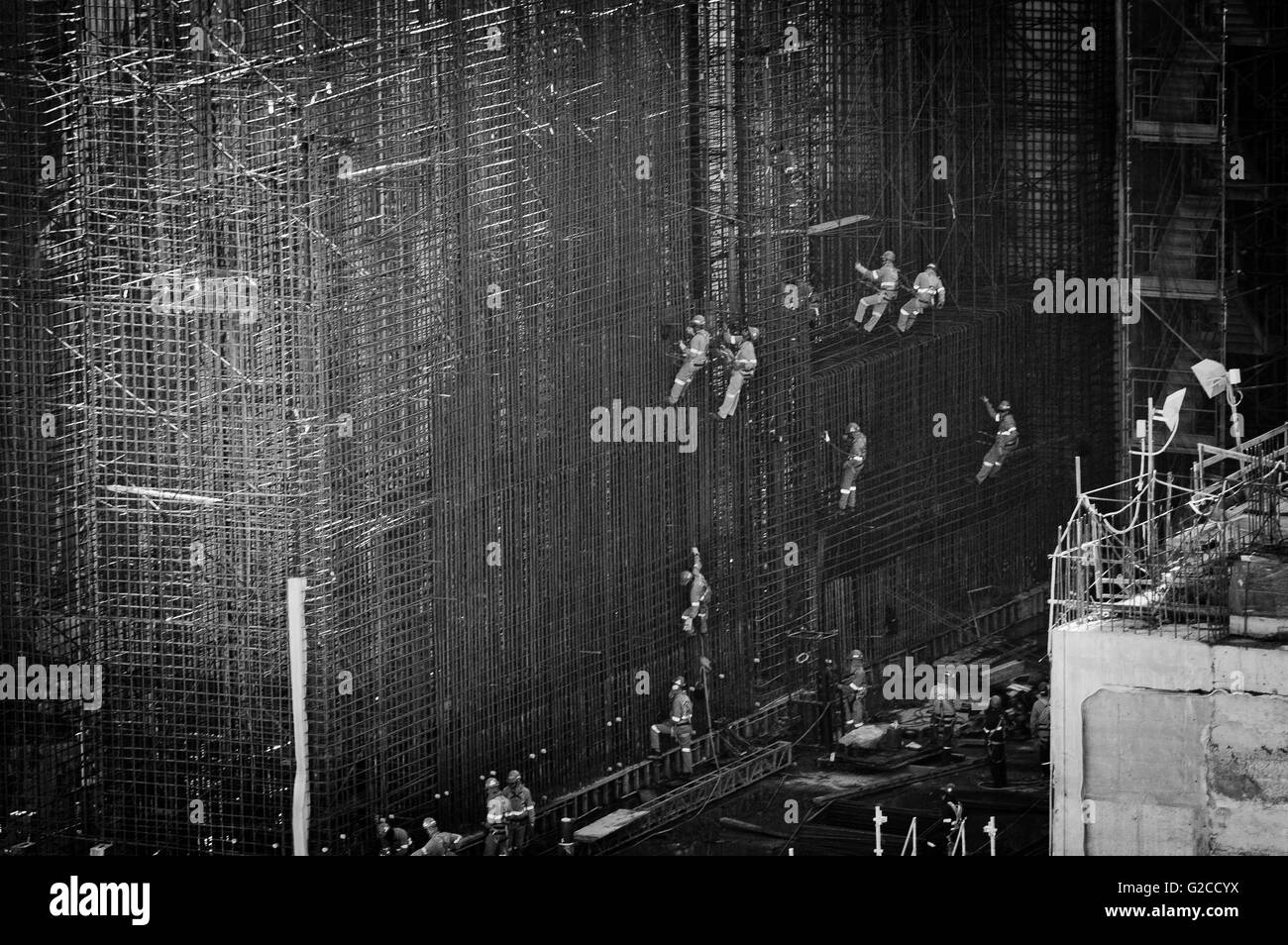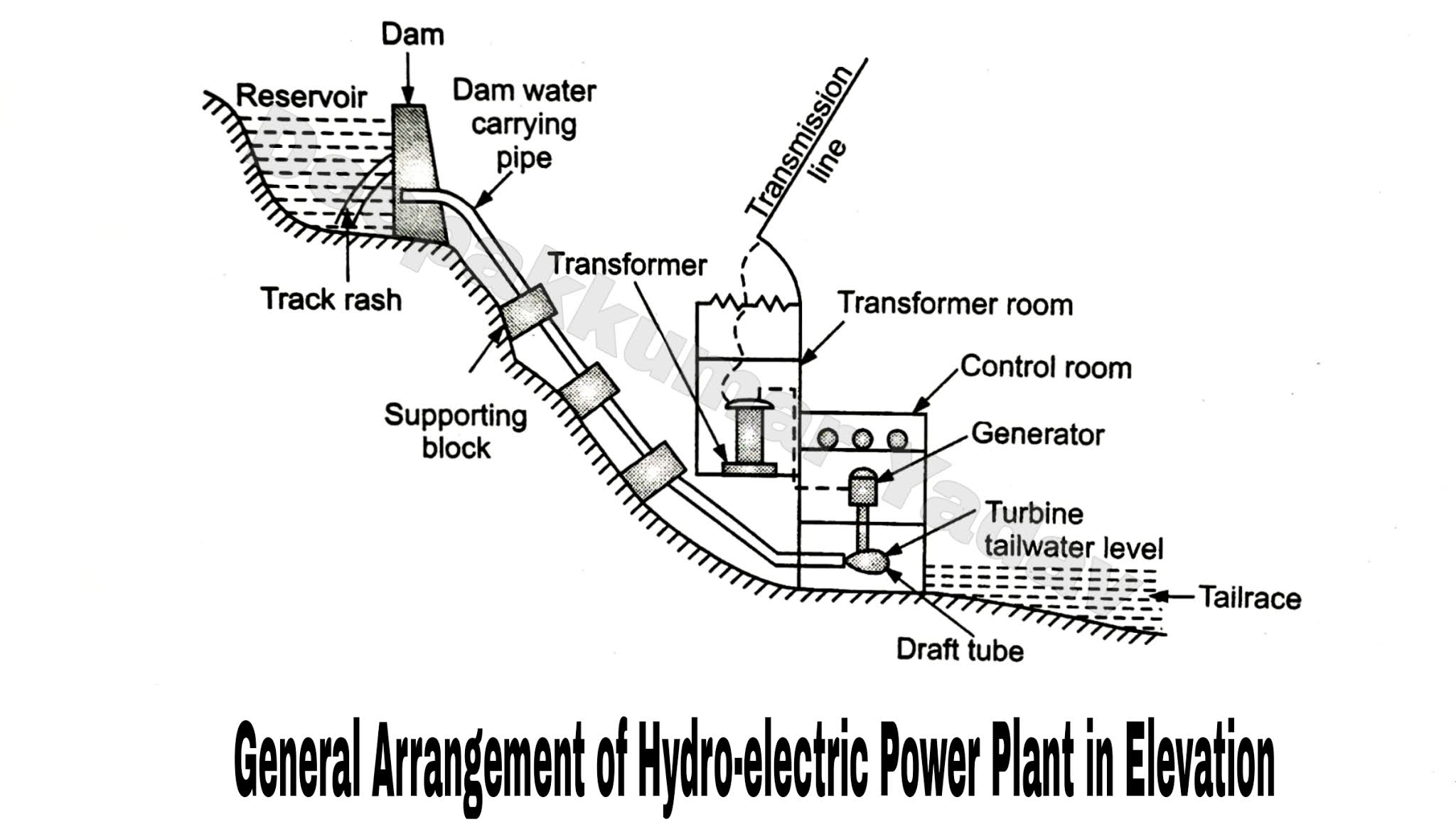Hydro power plant jobs offer a unique blend of technical expertise and environmental stewardship. From engineers and technicians to operators, these professionals play a vital role in harnessing the power of water to generate clean, renewable energy.
This comprehensive guide delves into the diverse roles within a hydropower plant, exploring the qualifications, skills, and industry trends that shape these careers. We’ll also uncover career paths, development opportunities, and the impact of emerging technologies on the hydropower industry.
Job Descriptions and Qualifications

Hydropower plants require a diverse workforce to operate and maintain their facilities efficiently. These professionals play crucial roles in ensuring the safe and reliable generation of electricity from water sources.
The primary job functions and qualifications for key positions within a hydropower plant are as follows:
Engineers
- Design Engineers: Design and oversee the construction of new hydropower plants or modifications to existing ones. They require a bachelor’s or master’s degree in civil or mechanical engineering, along with experience in hydraulics, hydrology, and structural analysis.
- Electrical Engineers: Design, install, and maintain electrical systems within the plant. They typically hold a bachelor’s or master’s degree in electrical engineering, with expertise in power systems, control systems, and electrical machinery.
- Mechanical Engineers: Oversee the operation and maintenance of mechanical equipment, including turbines, generators, and pumps. They require a bachelor’s or master’s degree in mechanical engineering, with experience in fluid mechanics, thermodynamics, and machine design.
Technicians
- Electrical Technicians: Install, maintain, and repair electrical equipment and systems. They typically hold an associate’s degree or certificate in electrical technology, with experience in power distribution, control systems, and electrical safety.
- Mechanical Technicians: Perform maintenance and repairs on mechanical equipment, including turbines, generators, and pumps. They typically hold an associate’s degree or certificate in mechanical technology, with experience in fluid mechanics, machinery, and welding.
Operators, Hydro power plant jobs
- Plant Operators: Monitor and control the operation of the hydropower plant, ensuring safe and efficient generation of electricity. They typically hold a high school diploma or equivalent, with experience in power plant operations and control systems.
- Dam Operators: Responsible for the safe operation and maintenance of the dam structure, including spillways, gates, and control systems. They typically hold a high school diploma or equivalent, with experience in dam operations and water management.
Industry Trends and Advancements: Hydro Power Plant Jobs

The hydropower industry is constantly evolving, with new technologies and innovations emerging all the time. These advancements are having a significant impact on job roles and responsibilities, as well as the way that hydropower plants are operated and maintained.
One of the most significant trends in the hydropower industry is the increasing use of renewable energy sources. As the world moves towards a more sustainable future, hydropower is becoming increasingly important as a source of clean, renewable energy. This is driving the development of new technologies that can harness the power of water more efficiently and effectively.
Emerging Technologies and Innovations
Some of the emerging technologies and innovations that are shaping the hydropower industry include:
- Advanced turbines: New turbine designs are being developed that can operate more efficiently at a wider range of flow rates and head heights. This is making it possible to harness the power of water in more locations, including smaller rivers and streams.
- Variable-speed generators: Variable-speed generators allow hydropower plants to adjust their output to meet the changing demands of the grid. This is helping to improve the stability and reliability of the power supply.
- Smart grid technologies: Smart grid technologies are being used to connect hydropower plants to the grid more efficiently and effectively. This is helping to improve the overall efficiency of the power system.
These are just a few of the emerging technologies and innovations that are shaping the hydropower industry. As these technologies continue to develop, they will have a significant impact on the way that hydropower plants are operated and maintained.
Career Paths and Development

The hydropower industry offers diverse career paths for individuals with varying skills and interests. These range from technical roles in plant operations and maintenance to managerial positions in project development and administration.
For those seeking technical expertise, opportunities exist in areas such as electrical engineering, mechanical engineering, civil engineering, and hydrology. These roles involve the design, construction, operation, and maintenance of hydropower plants and their associated infrastructure.
Professional Development and Advancement
Hydropower companies often provide comprehensive training and development programs to enhance employees’ skills and knowledge. These programs may include on-the-job training, workshops, conferences, and advanced degree programs. By participating in these opportunities, individuals can gain specialized knowledge and expertise in hydropower engineering, project management, and business administration.
Advancement within the industry is typically based on a combination of experience, qualifications, and performance. With proven capabilities and a commitment to professional growth, individuals can progress to senior-level positions in plant management, project development, or corporate leadership.
Navigating Career Transitions
Career transitions within the hydropower industry can be facilitated by networking, exploring internal job opportunities, and seeking external training or education. Attending industry events, joining professional organizations, and connecting with individuals in the field can provide valuable insights and potential job leads.
Exploring internal job opportunities within the same company can offer a seamless transition and leverage existing knowledge and experience. Additionally, pursuing further education or specialized training can enhance an individual’s qualifications and make them more competitive for higher-level positions.
